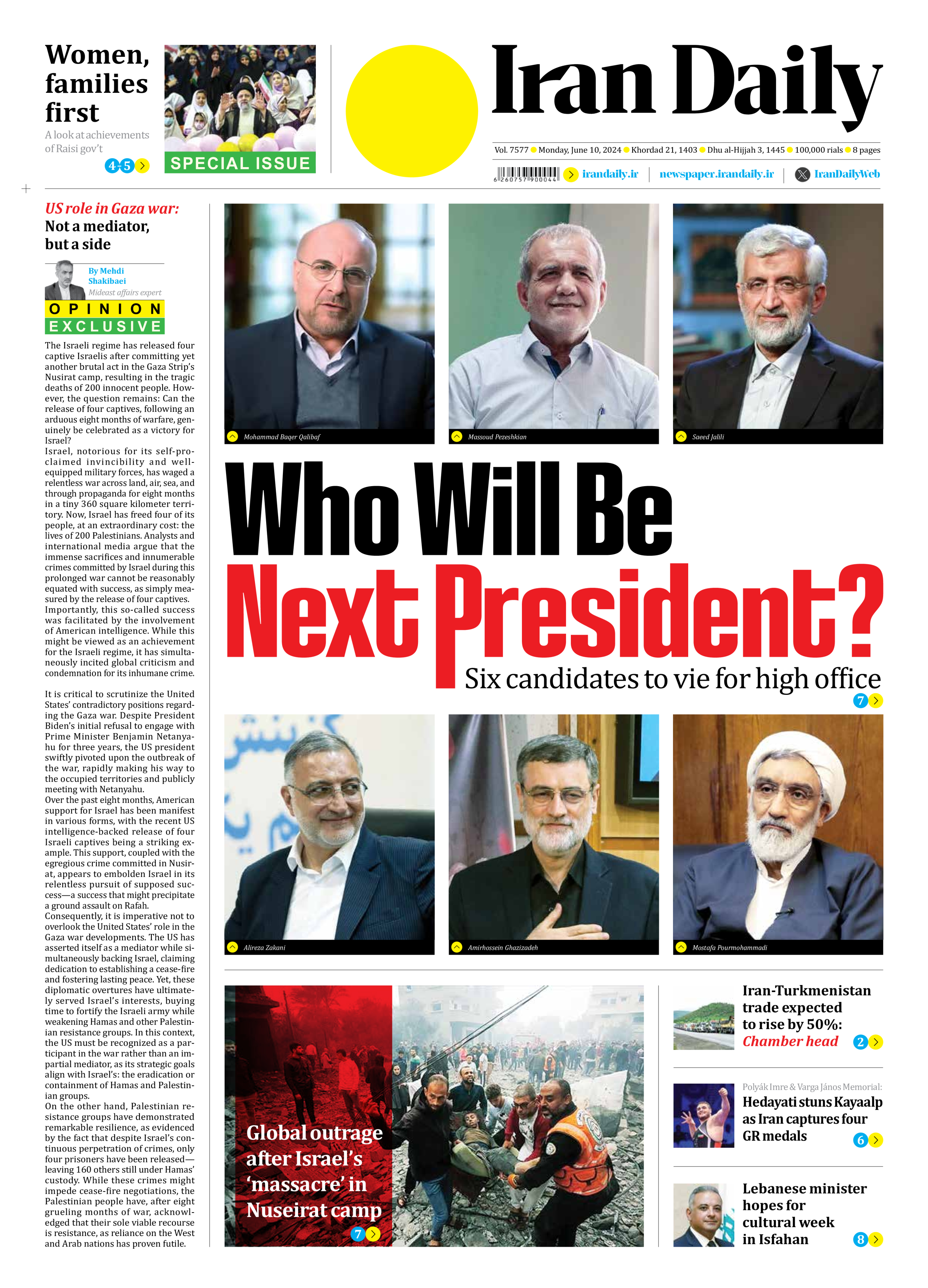
US role in Gaza war: Not a mediator, but a side
By Mehdi Shakibaei
Mideast affairs expert
The Israeli regime has released four captive Israelis after committing yet another brutal act in the Gaza Strip’s Nusirat camp, resulting in the tragic deaths of 200 innocent people. However, the question remains: Can the release of four captives, following an arduous eight months of warfare, genuinely be celebrated as a victory for Israel?
Israel, notorious for its self-proclaimed invincibility and well-equipped military forces, has waged a relentless war across land, air, sea, and through propaganda for eight months in a tiny 360 square kilometer territory. Now, Israel has freed four of its people, at an extraordinary cost: the lives of 200 Palestinians. Analysts and international media argue that the immense sacrifices and innumerable crimes committed by Israel during this prolonged war cannot be reasonably equated with success, as simply measured by the release of four captives.
Importantly, this so-called success was facilitated by the involvement of American intelligence. While this might be viewed as an achievement for the Israeli regime, it has simultaneously incited global criticism and condemnation for its inhumane crime.
It is critical to scrutinize the United States’ contradictory positions regarding the Gaza war. Despite President Biden’s initial refusal to engage with Prime Minister Benjamin Netanyahu for three years, the US president swiftly pivoted upon the outbreak of the war, rapidly making his way to the occupied territories and publicly meeting with Netanyahu.
Over the past eight months, American support for Israel has been manifest in various forms, with the recent US intelligence-backed release of four Israeli captives being a striking example. This support, coupled with the egregious crime committed in Nusirat, appears to embolden Israel in its relentless pursuit of supposed success—a success that might precipitate a ground assault on Rafah.
Consequently, it is imperative not to overlook the United States’ role in the Gaza war developments. The US has asserted itself as a mediator while simultaneously backing Israel, claiming dedication to establishing a cease-fire and fostering lasting peace. Yet, these diplomatic overtures have ultimately served Israel’s interests, buying time to fortify the Israeli army while weakening Hamas and other Palestinian resistance groups. In this context, the US must be recognized as a participant in the war rather than an impartial mediator, as its strategic goals align with Israel’s: the eradication or containment of Hamas and Palestinian groups.
On the other hand, Palestinian resistance groups have demonstrated remarkable resilience, as evidenced by the fact that despite Israel’s continuous perpetration of crimes, only four prisoners have been released—leaving 160 others still under Hamas’ custody. While these crimes might impede cease-fire negotiations, the Palestinian people have, after eight grueling months of war, acknowledged that their sole viable recourse is resistance, as reliance on the West and Arab nations has proven futile.







